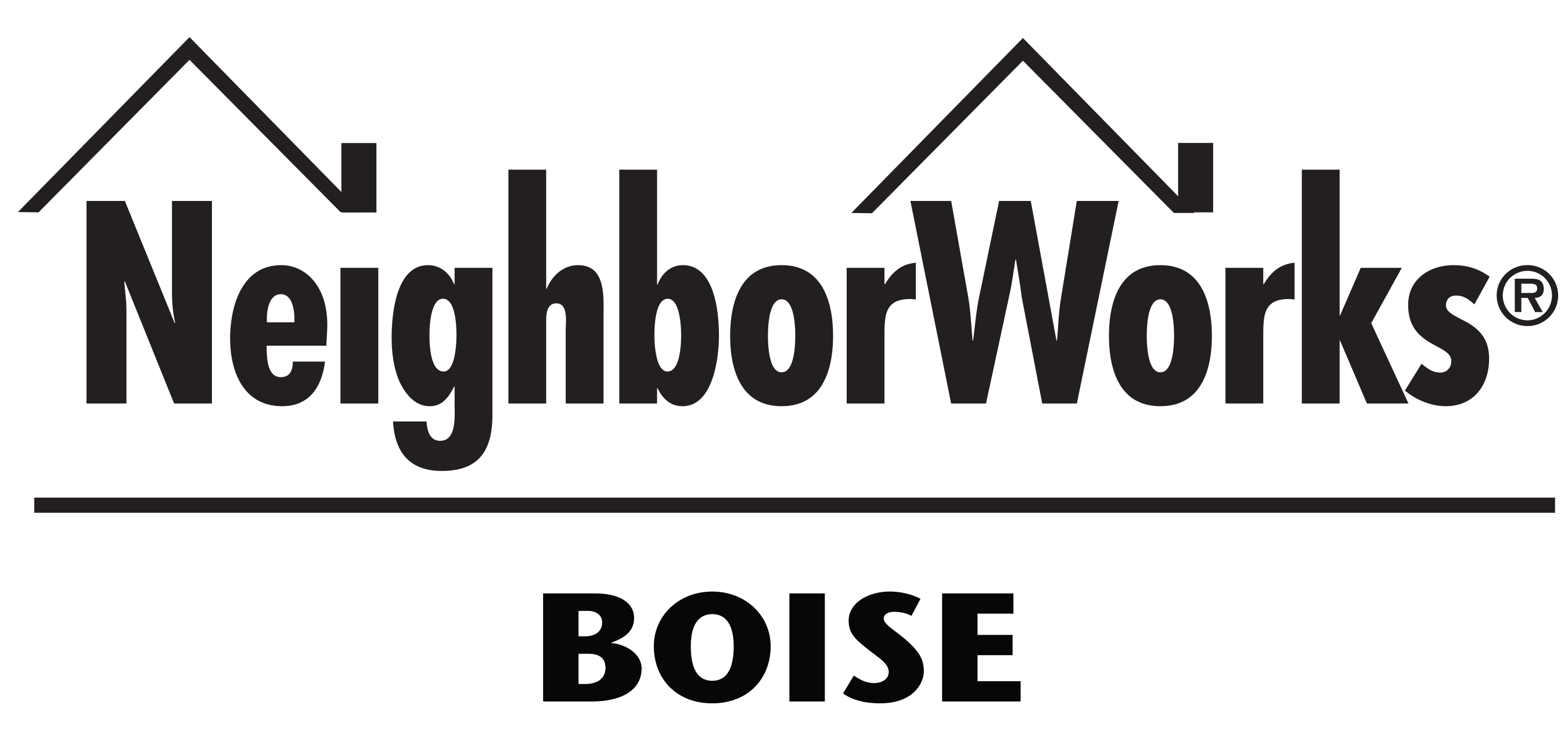Your Guide to Down Payment Assistance Programs in Idaho
Image Source: Pexels
Everything You Need to Know About Down Payment Assistance Programs in Idaho
Buying a home is a dream for most, and for good reason. You can adjust your home to your liking without asking a landlord’s permission. You have more security. You can build equity and financial stability. However, for many aspiring homebuyers, the initial down payment can be a significant barrier, especially as housing prices rise. According to a 2024 Zillow Home Value Index, the average home in Idaho is worth $460,955, almost 3% higher than the previous year. They also expect home values to continue to rise.
In opposition to this growing market trend, plenty of down payment assistance programs are available for homebuyers to help make homeownership more accessible and affordable. These assistance programs play a crucial role in helping first-time buyers secure their dream homes by offering grants, silent seconds, low-interest loans, and other financial aid. Understanding these options is essential for anyone looking to purchase a home without depleting their savings or taking on excessive debt.
You don’t have to face down payments alone if you’re a prospective homebuyer. Use this guide to learn about the different programs available in Idaho, the eligibility requirements, and how to apply. With it, you can be a homeowner in no time at all!
How Down Payment Assistance Programs Work
Simply put, down payment assistance programs provide the funds to pay for a down payment entirely or partially. Each program has its own set of terms and conditions that may vary depending on whether it’s forgiven after a certain period, whether it operates as a low-interest or delayed loan, and other factors.
Most down payment assistance programs offer the following options:
- Forgivable grants: These grants assist homebuyers that you don’t need to pay back after a certain number of years or as long as you meet certain conditions. For example, the homeowners may have to live in the house for at least five years. Otherwise, they must pay at least a portion of the grant back. Sometimes this option does come with the set back of a higher interest rate on your first mortgage.
- Non-forgivable grants/ Silent Seconds: You will have to pay the agency back at some point for these grants. Usually at the time you sell or refinance your home.
- Low-interest loans: These loans operate as a second mortgage, and you will have to pay the organization back over time. However, they often offer low interest rates, which may be more favorable.
- Deferred payment loans: This type of assistance operates as a second mortgage, which you can repay after you sell or refinance your house.
Ultimately, your choice of assistance will depend on your needs and financial state. For any assistance program, you will need to go through an application process, during which the agency will evaluate your eligibility, financial situation, and qualifications.
Image Source: Pexels
Types of Down Payment Assistance Programs in Idaho
Various agencies offer down payment assistance, which differs depending on where they get the finances for their available assistance. For example, state and city programs may have allocated funds from the U.S. Department of Housing and Urban Development (HUD). In contrast, others may operate primarily on donations as a non-profit.
State-Sponsored Programs
The Idaho Housing Foundation works as an agent for HUD and offers various financing options, including down payment assistance. They primarily offer a second mortgage with a 2% higher interest rate and a forgivable loan with a 0% interest rate. For both types of down payment assistance programs, you must have a household income of $150,000 or less and take a Homebuyer Education Program.
Local Government Programs
HUD also offers assistance with down payments on a city and county basis. In the Treasure Valley, the most common down payment assistance programs are:
- Homeownership Opportunity Program (HOP): HUD also supports the City of Boise and other cities throughout Idaho for down payment assistance. They work with local non-profit organizations to help educate homebuyers. They offer assistance as long as households make between 50% and 80% of the Area Median Income (AMI).
- Housing Choice Voucher Homeownership Option (HCVHO): The Boise City and Ada County Housing Authority (BCACHA) offers subsidized housing and payment assistance for moderate-income households. Applicants must be a part of the Family Self-Sufficiency (FSS) Program for one year, which helps homebuyers become financially independent.
If you live outside the Treasure Valley, you can also contact HUD for your closest HUD representative or lenders that work with them.
Non-Profit and Community-Based Programs
There are also non-profits in the Treasure Valley area and elsewhere in the state that offer programs for homebuyers interested in down payment assistance, including:
- NeighborWorks® Boise: This non-profit mortgage broker offers financing options, including some special grant programs. To qualify for these grants, , you must be at or below 80% of the AMI.
- LEAP Housing: This Boise non-profit provides affordable housing through down payment assistance in the LEAP Housing Trust and the LEAP Loan Fund. They also provide low-interest loans so buyers don’t have to spend more than 35% of their income to buy a house.
- Autumn Gold: This Caldwell based non-profit provides affordable housing through down payment and closing cost assistance. Qualified participants will have the opportunity to purchase a newly renovated or newly constructed home.
As non-profits, these organizations provide down payment assistance thanks to government grants and local donations. Because of this, you will have to apply and meet their eligibility requirements.
Image Source: Pexels
Eligibility Requirements for Down Payment Assistance
Eligibility requirements exist for a reason. Down payment assistance programs use them to ensure they’re giving the funds to the people who need them the most. As you can tell from the examples above, each program varies in its requirements. When researching down payment assistance, compare the following factors with your financial and personal situation.
Income Limits
Most programs have income limits to target potential homebuyers who have low-to-moderate incomes. Often, they’ll use the AMI to see how your income compares with the competitive market. Every year, HUD publishes the AMI across the country, but this standard can be adjusted based on the size of your family. For example, if you are a two-person household, you would need to earn at or below $62,750 to qualify for assistance programs that have an 80% AMI benchmark, whereas as an eight-person family, you would need to earn at or below $103,500. This disproportion allows some wiggle room for those who may make more money to provide for their families but have little to save for a home.
Most programs mentioned above require your household to earn an income at or below 80%, but some programs, such as the City of Boise HOP program, require an income between 50 and 80%. The minimum benchmark shows them that you can maintain your finances after buying the house, especially as property taxes rise.
First-Time Homebuyer Status
Often, many programs are only available to first-time home buyers to open homeownership to people who may not have the equity from a previous home to buy a new one. A first-time homeowner is anyone who hasn’t owned a home in the past three years, either on their own or as a family. There are also particular circumstances where you may qualify as a first-time homebuyer, even if you’ve owned a mortgage before. For example, you may qualify if you:
- Identify as a divorced person or displaced parent: If you have recently gone through a divorce after co-owning or cohabitating with a spouse, you may qualify.
- Haven’t owned a home in the last three years: If you haven’t owned a home in the past three years, you may not have the funds from selling your previous house to buy a new one, especially as inflation rises.
By identifying as a first-time homeowner, you can access more programs, such as the HUD and FHA loans, that provide exclusive assistance in a competitive market.
Credit Score and Financial Criteria
As most down payment assistance programs will work in tandem with your mortgage loan, your credit score requirement will vary depending on your primary mortgage loan. For example, your credit score should be at least 620 if you have a conventional loan. However, if your primary mortgage loan is an FHA loan, you can have a lower credit score of 580. Your primary loan will also require a stable employment history and a favorable debt-to-income (DTI) ratio to prove your repayment reliability.
In addition, some down payment assistance programs may require you to provide a small percentage of savings when placing a down payment. For example, you must provide .5% of the down payment when applying for programs from the Idaho Housing and Finance Association.
Many programs require a Homebuyer Education course before applying to help prepare you for homeownership. These courses help ensure you have all the tools to pay off any loans, but they also help keep you financially stable. They’ll often provide financial recommendations, such as:
- Make your credit card, rental, and other payments on time.
- Create a budget to allocate a small percentage of funds for savings.
- Focus on paying off high-interest debt.
- Avoid opening new credit accounts.
- How to build credit
Additionally, these courses help walk you through the homebuying process. Sometimes, this process takes time. In the end, though, you may find that homeownership is worth it.
How To Apply for Down Payment Assistance in Idaho
With all down payment assistance programs, you will need to apply. You must complete this application thoughtfully and thoroughly to increase your chances of receiving down payment assistance.
Preparing Your Application
To make your application easier to fill out, prepare by gathering the necessary documents the application may ask for, such as:
- Employment verification;
- Paystubs
- Bank statements;
- Government-issued ID;
- Debt information.
As you fill out your application, it’s best to keep these documents organized in the same place and double-check that you’ve attached all of the necessary information. If you don’t, if your application is incomplete or inaccurate, the agency will likely reject it.
You should also complete the application before the deadline, or you will likely have to wait another year to apply again.
A Step-By-Step Guide to Idaho Down Payment Assistance Application
After you submit your application, the agency will likely review it in a few weeks to a few months, depending on the number of applications they receive. During this time, they may contact you if you have any questions or need additional documentation. It’s essential to answer their questions or send updated documents immediately. Otherwise, they may turn to other applicants.
If the agency approves your application, they’ll contact you about the amount of funding they can provide and any next steps you should anticipate. These will likely involve the closing process, working with your real estate agent and lender, and providing final documentation.
After you receive the assistance, keep all documents from the exchange, as you may need them later if you ever decide to sell again.
Working with Lenders and Real Estate Agents
Your lenders and real estate agents will be your lifeline during the application process. Ideally, you should pick a real estate agent with experience working with the program. They may be familiar with the process, know which properties may be eligible for the program, and negotiate with sellers to provide the best possible offer that will work with the financing available for the down payment assistance program. Many down payment assistance agencies will require you to use an approved lender or their in-house lender. To ensure you have a real estate and lender, do the following:
- Interview multiple real estate agents and lenders: Ask multiple people about their experience working with down payment assistance programs. Those who have had experience, and positive ones at that, will be more likely to be an asset during the process.
- Ask the down payment assistance agency for recommendations: If you apply first and get approved for assistance, the agency will have a list of agents and approved lenders they’ve worked with before.
- Communicate: Once you have the right real estate agent and lender, it’s best to provide a channel to communicate and share any contact information with the down payment agency. Doing this and regularly checking in enables you to catch problems early.
Ultimately, your real estate agent and lender are key to ensuring that your homebuying process is as stress-free as possible.
Benefits of Down Payment Assistance Programs
By reducing the upfront cost of a down payment, assistance programs offer the following benefits:
- Better monthly mortgage payments: Down payment assistance allows you to receive more favorable terms on a primary mortgage, meaning you won’t have as high an interest rate or monthly payment. You also will most likely avoid paying mortgage insurance.
- Making homeownership more accessible: Down payment assistance programs make homeownership available to people who wouldn’t otherwise consider it.
- Increasing stability and wealth building: Because down payment assistance often provides lower interest rates, you will have a smaller loan that you can pay off faster. You will also have access to equity, enabling you to buy homes in the future.
You can have an entirely different future with the help of different assistance programs.
Challenges and Considerations
Although down payment assistance can be essential, you should consider the following challenges before applying:
- Restrictions: As mentioned, most down payment assistance programs have eligibility requirements, such as having a certain income and being a first-time buyer. In addition, forgivable loans may require you to live in the home for at least five years unless you want to repay the loan, and can cause you to have a higher interest rate.
- Long-term obligations and repayment terms: Not all down payment assistance programs have forgivable loans, so you may have to pay the agency back on top of the mortgage loan you’re already paying for.
- Limited homebuying choices: Many loans may also restrict your geographic location, requiring you to buy in a particular neighborhood or city.
- Denied applications: In exceptionally competitive markets, the program may not accept your application.
These challenges may be cumbersome, but you can overlook them if you work strategically. For example, you can avoid disappointment from restrictions by researching the eligibility requirements beforehand. You can also request educational assistance for repayment plans, as many agencies may have courses available.
If the agency denies your application, don’t lose hope. You may be able to apply in the future in a less competitive market or seek feedback on why your application was rejected. You may also be able to seek out other loan options with more favorable terms, even if you don’t have that high of a down payment.
Additional Resources for Homebuyers in Idaho
If you’re interested in down payment assistance, use these resources to help you get started.
Educational Programs and Workshops
As mentioned, most programs require you to take a financial education course. By taking them, you’ll better your chances of receiving assistance and have more financial literacy skills. Here are some options to boost your financial knowledge:
- NeighborWorks® Boise Homebuyer Education: To receive assistance from NeighborWorks® Boise, you must take a homebuyer education course. This course takes six hours to complete and is the live version of the Idaho Housing Finally Home! Course. It covers key information such as budgeting, the home-buying process, and other financial assistance programs.
- Finally Home!® Homebuyer Education: This course is a requirement for any assistance from the Idaho Housing and Financial Foundation. In the course, you will learn budget tips, the home-buying process, and whether you’re ready for homeownership.
- Fannie Mae HomeView Homebuyer Education: This free course helps you save for homeownership and determine whether you’re ready for the commitment. After completing the course, you receive a certificate that may help you qualify for certain assistance programs.
- Idaho State Treasury Financial Freedom Resources: Use the resources listed on the Idaho State Treasury website to improve your financial literacy.
Financial Counseling Services
In addition to educating yourself, many programs will require you to meet up with a financial counselor who will help you evaluate your current financial standing and point you toward suitable loans and grants to apply for. Here are a few for you to consider:
- NeighborWorks® Boise Counseling: NeighborWorks® has an entire staff of counselors and coaches who will talk to you about budgeting and current financial options available based on your circumstances.
- Idaho Housing and Finance Association Housing Advice: Idaho Financing provides a free counselor to help identify grants and loans available to you and how to budget accordingly for homeownership.
- U.S. Department of Housing and Urban Development Counseling Services: HUD provides a search engine to help point you toward the closest financial advisor in your area.
In the end, homeownership isn’t a far-off dream. By taking the time to research and apply for the right down payment assistance program, living in a home you own can be a reality. Contact NeighborWorks® Boise today for more information on your assistance and the available loaning options!
FAQs About Down Payment Assistance Programs in Idaho
What Is Down Payment Assistance?
Down payment assistance is financial aid provided to homebuyers to help cover the cost of the initial payment required to purchase a home. This assistance can come through grants, loans, or other types of funding.
Who Qualifies for Down Payment Assistance?
Eligibility for down payment assistance typically depends on your income level, credit score, first-time homebuyer status, and location. Each program has its own specific requirements that applicants must meet.
How Much Assistance Can I Receive?
The amount of assistance varies by program, but it can range from a few thousand dollars to a significant portion of the down payment. The exact amount depends on the program’s guidelines and the homebuyer’s financial situation.
What Programs Are Available in Idaho?
Idaho offers several down payment assistance programs through the Idaho Housing and Finance Association (IHFA) and local government initiatives. These programs provide various forms of financial aid to help with home purchases.
How Do I Apply for a Specific Program?
To apply for a down payment assistance program, you must complete an application form and provide necessary documentation, such as proof of income and credit history. Each program has its application process and requirements.
What Are the Repayment Terms for Assistance?
Repayment terms for down payment assistance vary by program; some programs offer forgivable loans, which you don’t need to repay if you meet certain conditions. Other programs may require repayment over time or after the home’s sale.
What Documents Do I Need to Apply?
Standard documents required for application include 2-months of paystubs or proof of income, 2 years of federal tax returns, 2 months of bank statements, proof of any other assets and credit reports. Specific programs may request additional information to determine eligibility.
How Long Does the Application Process Take?
The application process can take anywhere from a few weeks to a couple of months, depending on the program and the completeness of your application. Timely submission of all required documents can help expedite the process.
Can I Apply for Multiple Programs?
Yes, you can apply for multiple down payment assistance programs, but you must meet the eligibility criteria for each one. It’s essential to check if combining assistance from different programs is allowed and beneficial.
Are There Any Restrictions on the Type of Home I Can Buy?
Some down payment assistance programs may restrict the type of property you can purchase, such as requiring the home to be a primary residence, meeting certain price limits, or being in a certain location. Be sure to review the specific guidelines of each program.



